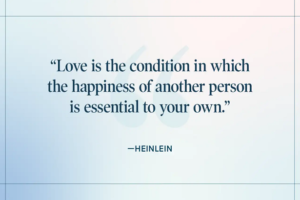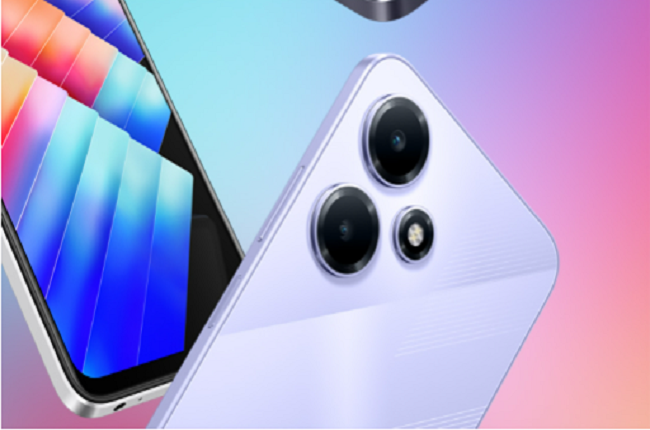Virtual reality, or VR, has been a popular term for some time, but it’s more than just a glitzy technology used by video game enthusiasts. In reality, VR is revolutionising a variety of industries here in the USA, and its influence will only spread over time. Virtual reality is altering how we perceive and engage with the world around us in a variety of fields, including healthcare, education, gaming, real estate, retail, and tourism.
What precisely is virtual reality, then? Virtual reality is fundamentally an immersive experience that simulates a real-world or made-up setting. Users can engage with this digital environment in a way that feels highly lifelike by donning a headset or using a controller. It makes sense that VR is growing more significant in the modern world, where people are always looking for fresh, cutting-edge ways to interact with and consume material. VR is enabling individuals to achieve things they never imagined were possible, all from the convenience of their own homes, for everything from training simulations to leisure experiences. In this article, we’ll examine the ways that virtual reality is reshaping many American businesses, as well as its advantages and applications in transforming how we live, work, and play.
Virtual Reality in the Medical Sector
Due of its many advantages that potentially enhance patient experiences and outcomes, virtual reality is causing a stir in the US healthcare sector. VR is being used by healthcare professionals in a variety of settings, including therapy, pain treatment, medical education, and training. Healthcare practitioners can increase patients’ recovery times and lower patients’ pain, anxiety, and stress by immersing them in a virtual world. Additionally, virtual reality enables medical students to train procedures in a secure and monitored setting, lowering the possibility of error during actual procedures.
A number of businesses in the USA are already utilising virtual reality in healthcare, including Firsthand Technology and Osso VR, which offer virtual reality surgical training simulators for medical professionals and students, respectively. In addition, VRHealth has developed a collection of VR solutions for medical professionals to enhance patient outcomes and engagement. Virtual reality is a technique that is becoming more and more crucial in the US healthcare sector thanks to its various advantages and creative applications.
The use of virtual reality in education
In the USA, virtual reality is transforming how students interact with and learn from instructional materials. Students can immerse themselves in educational settings and activities that were before impractical with VR, creating a distinctive and interesting learning environment. Students who use virtual reality may visualise ideas in a more concrete way, which helps improve understanding and memory. Additionally, virtual reality (VR) can be utilised to imitate risky or expensive experiences, including space flight or historical events, letting pupils experience them in a secure setting.
Numerous businesses in the USA are already utilising virtual reality (VR) in education, such as Nearpod and zSpace, which offer VR classes for K–12 students and hands-on learning in STEM fields, respectively. VictoryXR has also produced VR instructional materials for topics including anatomy, biology, and history. Virtual reality is a technique that is becoming more and more crucial in the American education sector thanks to its wealth of advantages and cutting-edge uses.
Virtual Reality in the Gaming Sector
Through its ability to give players a more immersive and participatory experience, virtual reality is revolutionising the gaming business in the United States. VR enables gamers to enter a virtual environment and engage with games in previously impractical ways, including first-person shooters and sports simulations. Because users may engage with others virtually and experience a sense of being in the same physical area, virtual reality can also provide a more social experience.
In the USA, a number of businesses have already developed VR gaming products. These include Sony, which has created its own VR gear and exclusive games for the PlayStation platform, and Oculus, which provides VR headsets and games for PCs and mobile devices. Additionally, Google has produced VR games for its Daydream platform, while Valve has produced the well-known VR game Half-Life: Alyx. It’s obvious that virtual reality is becoming a more crucial instrument in the American gaming industry given its rising popularity.
The Real Estate Industry and Virtual Reality
In the USA, virtual reality is revolutionising the real estate market by giving buyers and sellers a more immersive and participatory experience. Virtual reality (VR) enables potential purchasers to inspect properties in a virtual setting, allowing them to see all of the property’s details without really going there. This can result in quicker sales and a more enjoyable experience while also saving buyers and sellers time and money.
A number of businesses in the USA are already utilising virtual reality in the real estate industry, like VirtualAPT and Matterport, which both offer 3D virtual tours of properties. Additionally, Sotheby’s International Realty and VR company Inmersion have teamed up to provide virtual tours of exclusive properties. Given the advantages of virtual reality in the real estate sector, it’s no surprise that more businesses in the USA are integrating it into their business strategy.
Retail Industry Virtual Reality
By giving customers a personalised and immersive purchasing experience, virtual reality is revolutionising the US retail sector. Customers can visually try on clothing and accessories, see how furniture and home décor will appear in their space, and even test drive cars without ever leaving their houses thanks to virtual reality (VR). Customers have a more enjoyable and convenient shopping experience as a result of the time savings.
In the USA, a number of businesses have already begun utilising virtual reality in retail, such as Ikea, which gives a VR kitchen experience, and Sephora, which offers virtual makeup try-ons. Additionally, Walmart has produced a VR training programme for staff, while Audi has built a VR showroom for customers to view its automobiles. Given the advantages of virtual reality in the retail sector, it is obvious that businesses are using it more frequently to improve the shopping experience in the USA.
VR in the Travel and Tourism Sector
In the USA, virtual reality is revolutionising the travel and tourism sector by giving visitors an immersive and participatory experience. Virtual reality (VR) enables visitors to virtually tour a variety of locations and attractions, including museums, national parks, hotels, and resorts. Travellers can make more educated and involved decisions regarding their travel plans as a result of this saving them time and money.
A number of businesses in the USA are already utilising virtual reality in the travel and tourism industry, such as Marriott, which provides VR experiences in its hotels, and the New York Times, which has produced virtual reality videos of well-known tourist destinations. Additionally, the Las Vegas Convention and Visitors Authority built a VR experience highlighting the city’s attractions, while Visit Florida created one displaying Florida’s beaches. Given the advantages of virtual reality for the tourist sector, it is obvious that businesses are using it more frequently to improve the vacation experience in the USA.
Conclusion
In conclusion, virtual reality has fundamentally altered a number of industries in the USA, including real estate, gaming, healthcare, and more. VR is revolutionising the way businesses run and connect with their target audiences by giving consumers, employees, and partners immersive, engaging, and personalised experiences.
The advantages of VR in various businesses are obvious, including improved decision-making, cost savings, higher efficiency, and consumer engagement. The applications for VR in various industries are virtually limitless as technology develops. The potential for this technology is vast, ranging from virtual reality schools to virtual reality medical training.
It appears that virtual reality will have a bright future in a variety of American industries. Businesses who adopt this technology are likely to have an advantage over rivals in their particular markets. We may anticipate seeing even more cutting-edge uses and applications of VR in the future as more companies adopt it. In the end, virtual reality is poised to completely transform a number of businesses in the USA and beyond, and we are eager to see what the future contains.
Read More You May Like:











